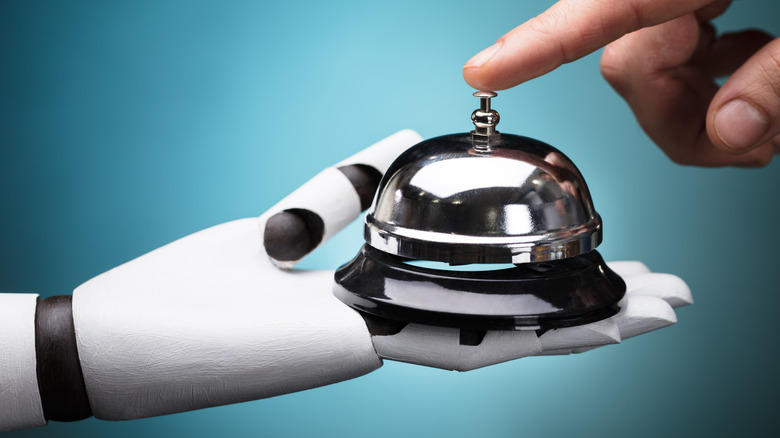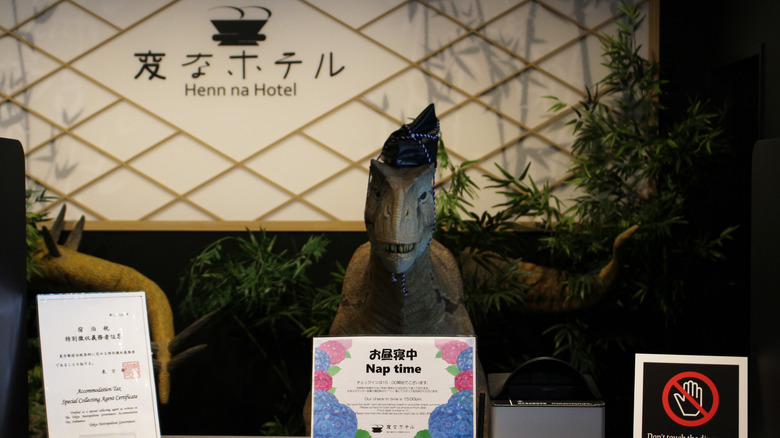The Reason Some People Aren't Thrilled With Robot-Run Hotels
The idea of a hotel run entirely by robots may seem like it has upsides. Tasks could be completed quickly and simply, while the workload put on the staff running the hotel decreases. This is how it should work, in theory at least. In reality, robot hotels aren't ready to meet such expectations yet. The world's first robot-run hotel was launched in Nagasaki, Japan in 2015, called Henn na Hotel, with robots running the front desk, bringing luggage to rooms, answering questions, and more, according to The Guardian.
In the beginning, the hotel had over 200 robot staff helping humans run the establishment. Each room also came with a robot that could assist guests. After a few years passed, many of the robots were essentially "fired," and replaced by humans, for reasons that show more work needs to be done before they can truly do a human's job.
Robots create problems for hotel staff
When it came down to it, the robots were making a lot of mistakes, requiring humans to have to step in more often than not. According to Hotel Management, Henn na Hotel's room assistant robots wracked up complaints from guests. They couldn't answer questions beyond anything basic, and the front desk robots were even worse. The luggage robots also had issues with delivering baggage to the rooms, rendering them useless.
Each of these problems necessitated human intervention, defeating the purpose of having robots in the first place. For this reason, over half of them were fired (via Hotel Management). However, this doesn't mean that robots in hotels are an entirely fruitless endeavor. For example, Hilton's partnership with IBM to create the robot Connie, a concierge robot in McLean, Virginia, has showed promise (via USA Today). There's also Dash, the robot at Crowne Plaza in Milpitas, California, which works as delivery service to bring guests refreshments and toiletries (via ABC News).
A robot-run hotel isn't entirely out of the question in the future, but it'll take a lot more work to get to that point.

